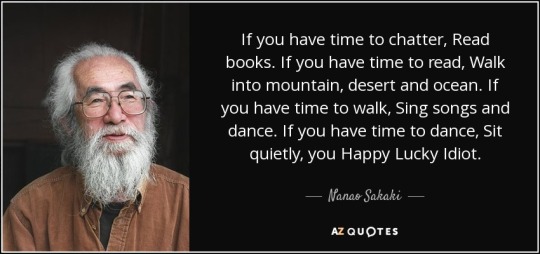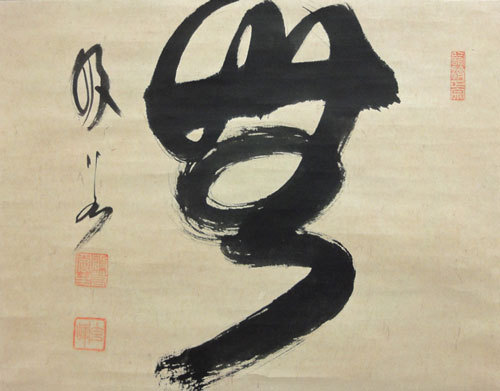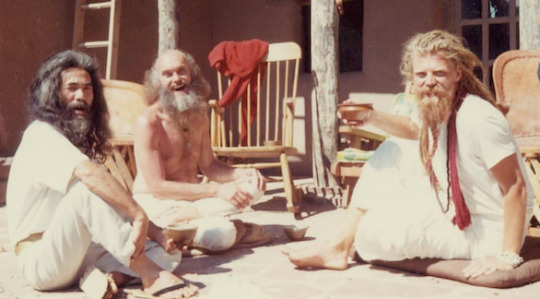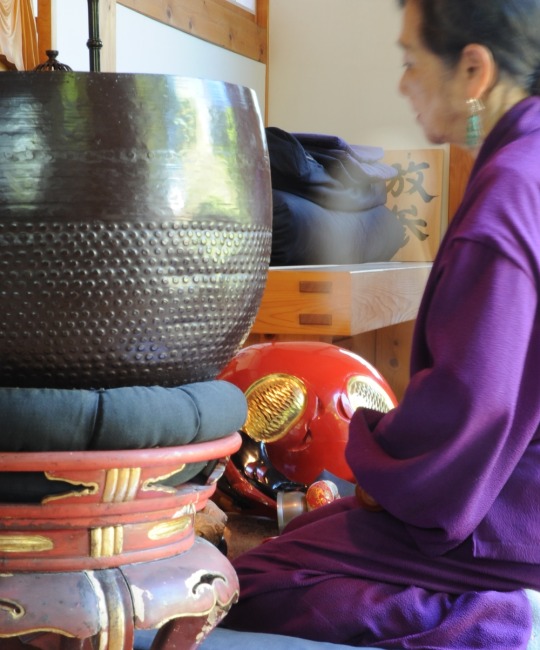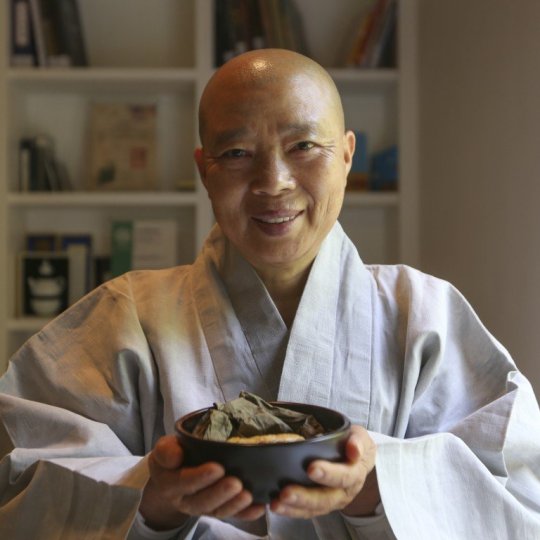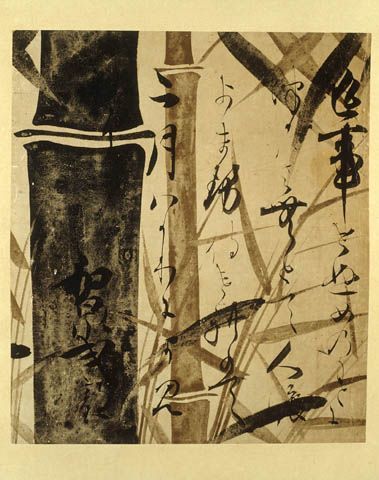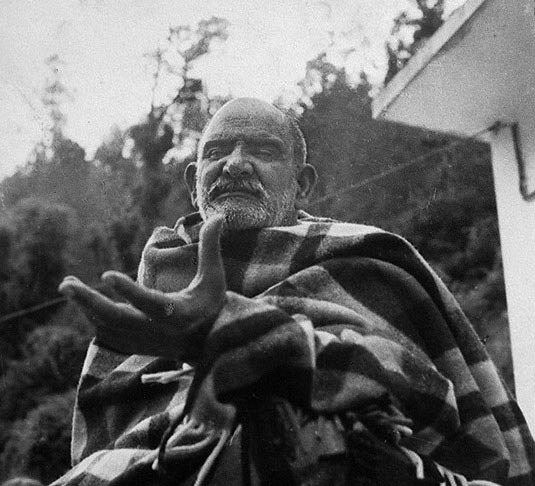#nanao sakaki
Text

If you have time to chatter,
Read books.
If you have time to read,
Walk into mountain, desert and ocean.
If you have time to walk,
Sing songs and dance.
If you have time to dance,
Sit quietly, you happy, lucky idiot.
Nanao Sakaki
29 notes
·
View notes
Text
Break the Mirror
In the morning
After taking cold shower
—-what a mistake—-
I look at the mirror.
There, a funny guy,
Grey hair, white beard, wrinkled skin,
—-what a pity—-
Poor, dirty, old man,
He is not me, absolutely not.
Land and life
Fishing in the ocean
Sleeping in the desert with stars
Building a shelter in the mountains
Farming the ancient way
Singing with coyotes
Singing against nuclear war—
I’ll never be tired of life.
Now I’m seventeen years old,
Very charming young man.
I sit quietly in lotus position,
Meditating, meditating for nothing.
Suddenly a voice comes to me:
“To stay young,
To save the world,
Break the mirror.”
Nanao Sakaki
#poem#poets on tumblr#poetry on tumblr#poetry#poetrycommunity#poetscommunity#writers on tumblr#poems on tumblr#writers and poets#dead poets society#nanao sakaki
5 notes
·
View notes
Text
Nanao Sakaki’s poetry collection “Real Play”: My master poet
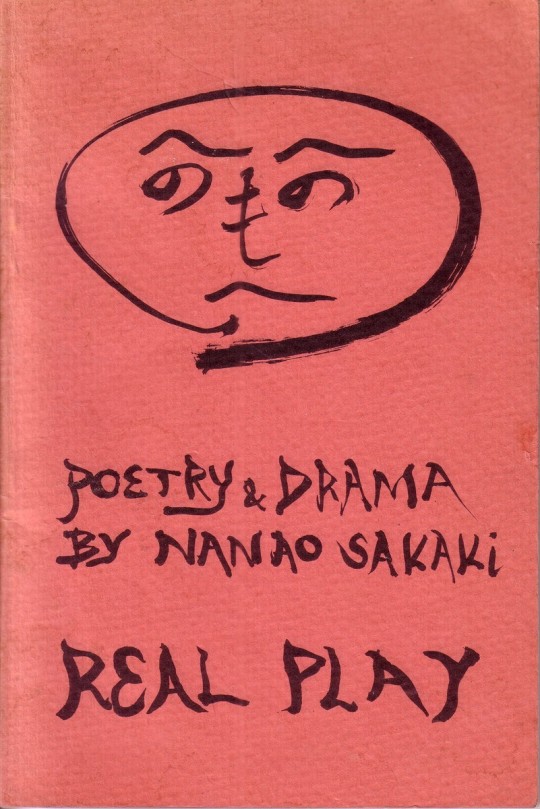
Even if you say "Sakaki Nanao" or "Nanao Sakaki", many people probably don't know. This person regarded the world as his garden and continued to wander the world and work to confront the world. Of course, his poems were written in Japanese, but he mastered English after he was over 60 years old, and used his language skills as a weapon to roam the world. He also heard that he lectured on haiku at an American university. He didn't want to become famous in the media, and often only performed his poems at recitals, but he listened to the wishes of a publisher called Yasosha and published a collection of poems called ``If Dogs Walk.'' They were published in the mass media. There is an English version called “Real Play.”
The two poems I will be discussing here are the poems included in ``If Dogs Walk'' that Nanao herself translated into English.
WHY
Why climb a mountain?
Look! a mountain there.
I don’t climb mountain.
Mountain climbs me.
Mountain is myself.
I climb on myself.
There is no mountain
nor myself.
Something
Moves up and down
in the air.
January ‘81
This poem has a purity that feels like Zen enlightenment. Can you also call it Brahma Ichinyo(梵我一如)? Nanao's unique sensibilities as an oriental person may have led him to this state.
・・・・・・・・・・・・・・・
FUTURE KNOWS
Thus I heard:
Oakland,California
To teacher’s question
An eleven-year-old girl answered.
“The ocean is
A huge swimming pool with cement walls.”
On a starry summer night
At a camping ground in Japan
A nine-year-old boy from Tokyo complained.
“Ugly, too many stars.”
At a department store in Kyoto
One of my friends bought a beetle
For his son, seven years old.
A few hours later
The boy brought his dead bug
To a hardware store, asking
“Change battery please.”
July ’79
I fearlessly dedicated my own poems to this great poet: Nanao. He paid attention to my abilities as a poet and told me that no matter how many poems I wrote, only a handful were able to be published, and he encouraged me to work hard. Unfortunately, he passed away about 20 years ago in the care of relatives in Japan.
3 notes
·
View notes
Text
Happy Lucky Idiot // Nanao Sakaki
If you have time to chatter
Read books
If you have time to read
Walk into mountain, desert and ocean
If you have time to walk
Sing songs and dance
If you have time to dance
Sit quietly, you Happy Lucky Idiot
0 notes
Text
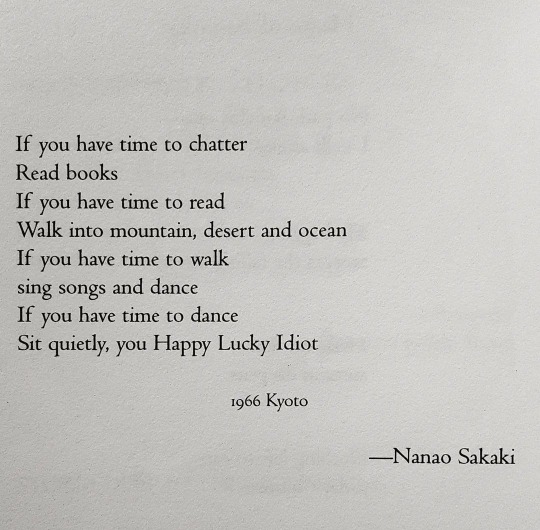
From @poetryisnotaluxury on Instagram
1 note
·
View note
Note
Loved your mentioning of learning poetry by heart: this is something I haven’t done since school! What are some of your favs that you’d suggest to ease my brain back into it?
(Française ici donc les options 🇫🇷 autant que anglais sont welcome :) merci!)
Hi :) You can look at the poem tag of my quote blog if you want—some of the ones I've learnt by heart (or excerpts from them) include this one by Sara Teasdale - Nanao Sakaki - Velimir Khlebnikov - Wallace Stevens - Rabindranath Tagore - Archibald Macleish - Howard Nemerov - and these paragraphs by Henri Peña-Ruiz which I consider prose poetry... My favourite French verses (from Corneille, Aragon, Anna de Noailles, Hugo, Valéry...) are all alexandrines and I find it to be the easiest type of verse to remember, as the structure is so rigorous and consistent. I sometimes translate English poems into alexandrines (like this one) to make them easier to learn in this more familiar form—I think even after all this time English prosody still feels foreign to me; the patterns of sound and rhythm in French are more deeply embedded in my brain so it can more easily predict what comes next...
Re: easing your brain into it, I guess that depends on your style of learning? For me the best way to learn a text is to spend time with it in written form, be it by translating it, or by writing it down by hand (slowly) and then (sometimes) keeping it for a while in a place where I often stand idle, like taped to my microwave so I re-read it as I wait 1 minute for something to heat up.
One thing I like about learning poems is that it's a costless, always-accessible way to get a sense of personal accomplishment. Beyond that, I've got three categories of poems I like to learn for different reasons—I'll go into some detail in case it can help you figure out what you're after :)
1. Classic poetry, because it's just fun to have little snippets of ancient tragedies or epic Victor Hugo poems living at the back of your mind and accompanying you through your own everyday tragedies—as an overdramatic person who tends to feel devastated or exasperated over tiny stuff, it helps me to take some distance from my feelings. Like if I spill a bucket of manure on my boots and my first reaction is rage and despair and my second thought is a couple of verses by Euripides where Iphigenia bemoans her relentless fate, it's a way to make fun of (and get over) myself.
My grandmother did this a lot, she knew so many poems by heart and often used them ironically. If I went whining to her when I was little she'd recite to me the last few verses of Alfred de Vigny's La Mort du Loup (it sounds better in the original but):
[...] With all your being you must strive
To that highest degree of stoic pride [...]
Weeping or praying—all this is in vain.
You must instead shoulder your long and heavy task
In the way that Destiny has seen fit to ask
Then suffer and die without complaint.
(Let me tell you, that's just what a five-year-old wants to hear after scratching her knee at the park) But really I admired this treasury of poetry she carried within her, especially as she only went to school until age 14 and came upon most of it thanks to her own curiosity; as well as the way she used it playfully in everyday life, using dramatic classical verse to de-dramatise minor annoyances.
2. Nature poems are great in the opposite way, to magnify minor positive things :) Like seeing a fox and having a few lines by Mary Oliver come to mind, seeing a frog and thinking of that Basho haiku... I recently discovered Jean-Michel Maulpoix and I also love his nature poems, like 'The recovery of blue after a downpour', the way he describes snow melting in the spring, or golden-blue evenings:
[Snow] takes some time to leave, but delicately.
She doesn’t insist, hardly persists,
never roots…
She gives way.
No one else dies so merrily
With such good humour
Unmatched is her disdain for eternity…
L’azur, certains soirs, a des soins de vieil or. Le paysage est une icône. Il semble qu’au soleil couchant, le ciel qui se craquelle se reprenne un instant à croire à son bleu.
3. And then there are the poems that proudly serve no purpose. <3 I mean beyond distilling language in a beautiful way. No deep meaning—or no meaning at all, e.g. surrealist poetry. I learnt this passage from Les Champs magnétiques back in middle school:
La fenêtre creusée dans notre chair s'ouvre sur notre cœur. On y voit un immense lac où viennent se poser à midi des libellules mordorées et odorantes comme des pivoines. Quel est ce grand arbre où les animaux vont se regarder ? Il y a des siècles que nous lui versons à boire. . . Prisonniers des gouttes d'eau, nous ne sommes que des animaux perpétuels. . . Nous ne savons plus rien des astres morts ; nous regardons les visages. . . Quelquefois, le vent nous entoure de ses grandes mains froides et nous attache aux arbres découpés par le soleil.
—and I've often recited it to myself just to enjoy these gratuitously nice sentences that aren't here to deliver information. Like Kay Ryan said, "Poetry makes nothing happen. That's the relief of it." It's a nice break, a way to remember that communicating isn't all language is for; beyond the social dimension there's also an intimate one that relies on our own aesthetic sensitivity. Most of the time we look through language, to access ideas, meanwhile enjoying poetry means looking at language, for a change, appreciating it for itself.
I just realised I'm paraphrasing John Brehm here—in The Poetry of Impermanence he wrote something that can be read as an ode to learning things by heart:
When you read lines that seem especially lit up—that move or intrigue you in some way, or that are simply pleasing or even dazzling—don’t focus on being able to formulate a statement about what they might mean, as if you might be called upon to explain the poem, to yourself or to someone else. Just linger with those poems or passages that resonate with you. . . Rest your mind on them; let them live inside you.
276 notes
·
View notes
Text
THE BOOKS I READ IN 2022, in the order in which I read them (*books I read before, that I was reading again):
Alexandra Chang, Days of Distraction
Elizabeth Miki Brina, Speak, Okinawa
Cynthia Dewi Oka, Fire Is Not a Country
Hanif Abdurraqib, Go Ahead in the Rain: Notes to A Tribe Called Quest
*Cathy Park Hong, Minor Feelings
Victoria Chang, Dear Memory
*Etel Adnan, Of Cities & Women (Letters to Fawwaz)
Sun Yung Shin, The Wet Hex
traci kato-kiriyama, Navigating With(out) Instruments
Raquel Gutiérrez, Brown Neon
Solmaz Sharif, Customs
*Etel Adnan, Journey to Mount Tamalpais
Lucille Clifton, Generations: A Memoir
Emerson Whitney, Heaven
Kim Thúy, em, tr. Sheila Fischman
Angel Dominguez, Desgraciado (the collected letters)
Janice Lee, Separation Anxiety
*Theresa Hak Kyung Cha, Dictee
*Cathy Park Hong, Translating Mo’um
Kyoko Hayashi, From Trinity to Trinity, tr. Eiko Otake
Lao Yang, Pee Poems, tr. Joshua Edwards & Lynn Xu
Yuri Herrera, A Silent Fury: The El Bordo Mine Fire, tr. Lisa Dillman (
Mai Der Vang, Yellow Rain
Chuang Hua, Crossings
José Watanabe, Natural History, tr. Michelle Har Kim
Walter Lew, Excerpts from: ∆IKTH 딕테/딕티 DIKTE, for DICTEE (1982)
*Bhanu Kapil, The Vertical Interrogation of Strangers
Vasily Grossman, An Armenian Sketchbook, tr. Robert & Elizabeth Chandler
Hiromi Kawakami, Parade, tr. Allison Markin Powell
Lynn Xu, And Those Ashen Heaps That Cantilevered Vase of Moonlight
*Etel Adnan, Sitt Marie Rose, tr. Georgina Kleege
Jennifer Soong, Suede Mantis/Soft Rage
*James Baldwin, No Name in the Street
*Hilton Als, The Women
Dot Devota, >She
V.S. Naipaul, The Return of Eva Perón
Yasushi Inoue, The Hunting Gun, tr. Sadamichi Yokoo and Sanford Goldstein
Molly Murakami, Tide goes out
Adrian Tomine, Shortcomings
Hisham Matar, A Month in Siena
Leia Penina Wilson, Call the Necromancer
Gabriel García Márquez, News of a Kidnapping, tr. Edith Grossman
Amitava Kumar, Bombay-London-New York
Elizabeth Alexander, The Trayvon Generation
Ryan Nakano, I Am Minor
Constance Debré, Love Me Tender, tr. Holly James
Hilton Als, My Pin-up
Victoria Chang, The Trees Witness Everything
Leslie Kitashima-Gray, The Pink Dress: A Story from the Japanese American Internment
Emmanuel Carrère, Yoga, tr. John Lambert
Ronald Tanaka, The Shino Suite: Sansei Poetry
Patricia Y. Ikeda, House of Wood, House of Salt
Soichi Furuta, to breathe
Kiki Petrosino, Bright
Sueyeun Juliette Lee, Aerial Concave Without Cloud
Nanao Sakaki, Real Play
Esmé Weijun Wang, The Collected Schizophrenias
Francis Naohiko Oka, Poems
Geraldine Kudaka, Numerous Avalanches at the Point of Intersection
Steve Fujimura, Sad Asian Music
Augusto Higa Oshiro, The Enlightenment of Katzuo Nakamatsu, tr. Jennifer Shyue
Julie Otsuka, The Swimmers
Salman Rushdie, The Jaguar Smile: A Nicaraguan Journey
Margo Jefferson, Constructing a Nervous System
Hua Hsu, Stay True
Barbara Browning, The Miniaturists
Kate Zambreno, Drifts
*Julie Otsuka, When The Emperor Was Divine
Louise Akers, Elizabeth/The Story of Drone
Wong May, In the Same Light: 200 Poems for Our Century from the Migrants & Exiles of the Tang Dynasty
Gabrielle Octavia Rucker, Dereliction
Trung Le Nguyen, The Magic Fish
Jessica Au, Cold Enough for Snow
Tongo Eisen-Martin, Blood on the Fog
Lucas de Lima, Tropical Sacrifice
*Like a New Sun: New Indigenous Mexican Poetry, ed. Víctor Terán & David Shook
Billy-Ray Belcourt, A Minor Chorus
Kazim Ali, Silver Road
*Sadako Kurihara, When We Say Hiroshima, tr. Richard Minear
Simone White, or, on being the other woman
*James Baldwin, The Devil Finds Work
Christina Sharpe, Ordinary Notes
*Raquel Gutiérrez, Brown Neon
Marguerite Duras, The Man Sitting in the Corridor
Gayl Jones, Corregidora
*Bhanu Kapil, The Vertical Interrogation of Strangers
*Etel Adnan, Seasons
Gwendolyn Brooks, to disembark
Cristina Rivera Garza, The Taiga Syndrome, tr. Suzanne Jill Levine and Aviva Kana
Gwendolyn Brooks, In the Mecca
Nona Fernández, The Twilight Zone, tr. Natasha Wimmer
Selva Almada, Dead Girls, tr. Annie McDermott
*Theresa Hak Kyung Cha, Dictee
Valerie Hsiung, To Love an Artist
*Theresa Hak Cha, Exilée and Temps Morts
Dao Strom, We Were Meant To Be a Gentle People
Randa Jarrar, Love Is An Ex-Country
*Dao Strom, Instrument
Osamu Dazai, Early Light, tr. Ralph McCarthy and Donald Keene
Osamu Dazai, The Setting Sun, tr. Donald Keene
Rachel Aviv, Strangers To Ourselves: Unsettled Minds and the Stories That Make Us
Mahmoud Darwish, Journal of an Ordinary Grief, tr. Ibrahim Muhawi
16 notes
·
View notes
Text
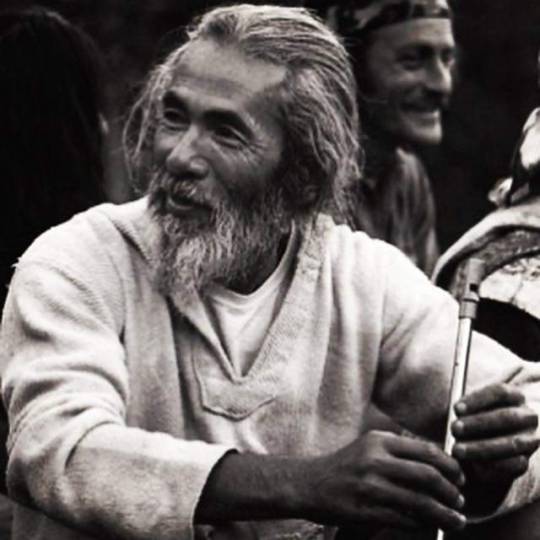
In the morning
After taking cold shower
—-what a mistake—-
I look at the mirror.
There, a funny guy,
Grey hair, white beard, wrinkled skin,
—-what a pity—-
Poor, dirty, old man,
He is not me, absolutely not.
Land and life
Fishing in the ocean
Sleeping in the desert with stars
Building a shelter in the mountains
Farming the ancient way
Singing with coyotes
Singing against nuclear war—
I’ll never be tired of life.
Now I’m seventeen years old,
Very charming young man.
I sit quietly in lotus position,
Meditating, meditating for nothing.
Suddenly a voice comes to me:
“To stay young,
To save the world,
Break the mirror.”
—Nanao Sakaki
source: Poetic Outlaws
2 notes
·
View notes
Text
Budoucnost
Slyšel jsem na vlastní uši:
Jedenáctiletá školačka
v kalifornském Oaklandu
na otázku učitele "Co je to oceán?" odpověděla:
"Je to obrovská plovárna s betonovými okraji."
Za hvězdné noci
v kempinku v japonských horách
stěžoval si devítiletý chlapec z Tokia:
"Ošklivé, příliš mnoho hvězd."
V obchodním domě v Kjótu
koupil můj kamarád
svému sedmiletému synovi živého brouka.
O několik hodin později
přinesl chlapec mrtvého brouka
zpět do obchodu se žádostí:
"Novou baterii, prosím."
Jít nalehko…, Nanao Sakaki, DharmaGaia, 2023, překl. Jiří Wein, str. 38
1 note
·
View note
Text
In the morning
After taking cold shower
—-what a mistake—-
I look at the mirror.
There, a funny guy,
Grey hair, white beard, wrinkled skin,
—-what a pity—-
Poor, dirty, old man,
He is not me, absolutely not.
Land and life
Fishing in the ocean
Sleeping in the desert with stars
Building a shelter in the mountains
Farming the ancient way
Singing with coyotes
Singing against nuclear war—
I’ll never be tired of life.
Now I’m seventeen years old,
Very charming young man.
I sit quietly in lotus position,
Meditating, meditating for nothing.
Suddenly a voice comes to me:
“To stay young,
To save the world,
Break the mirror.”
—Nanao Sakaki
1 note
·
View note
Text
Soil for legs
Ax for hands
Flower for eyes
Bird for ears
Mushroom for nose
Smile for mouth
Songs for lungs
Sweat for skin
Wind for mind
Just enough
Nanao Sakaki
October 1984,
Oshika V, Japan
14 notes
·
View notes
Text
How to live on Planet Earth
If you have time to chatter,
Read books.
If you have time to read,
Walk into mountain, desert and ocean.
If you have time to walk,
Sing songs and dance.
If you have time to dance,
Sit quietly, you happy, lucky idiot.
~ Nanao Sakaki, How to Live on the Planet Earth: Collected Poems (Blackberry Books, 2013)
21 notes
·
View notes
Text
#bloggingcommunity#blogger#poem blog#blog post#poetry blog#microblog#blogging community#blogging#poem#poetry on tumblr#poetry#poems on tumblr#poets on tumblr#writers and poets#writers on tumblr#poetrycommunity#poetscommunity#dead poets society#writing community#creative writing#writerscommunity#writing#poets and writers
5 notes
·
View notes
Text
The Frog Battle (Poetry)
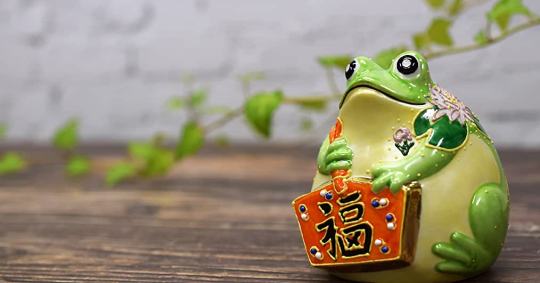
↑CM image
It's midnight now.
This time,
From drained paddy fields
Loud volume heard--
the frog battle
Was started.
From now on, here
It becomes a figure of lust of frogs.
A male frog fights over a female frog. My poetry teacher Nanao Sakaki also wrote a poem with this title. While thinking that it is nostalgic.
蛙合戦(かわずがっせん:詩)
今は夜中。
時ならず、
引水した水田から
聞えてくる大音量――
蛙合戦の
始まりだ。
今よりここは、
蛙の愛欲図となる。
(2016.06.17)
6 notes
·
View notes
